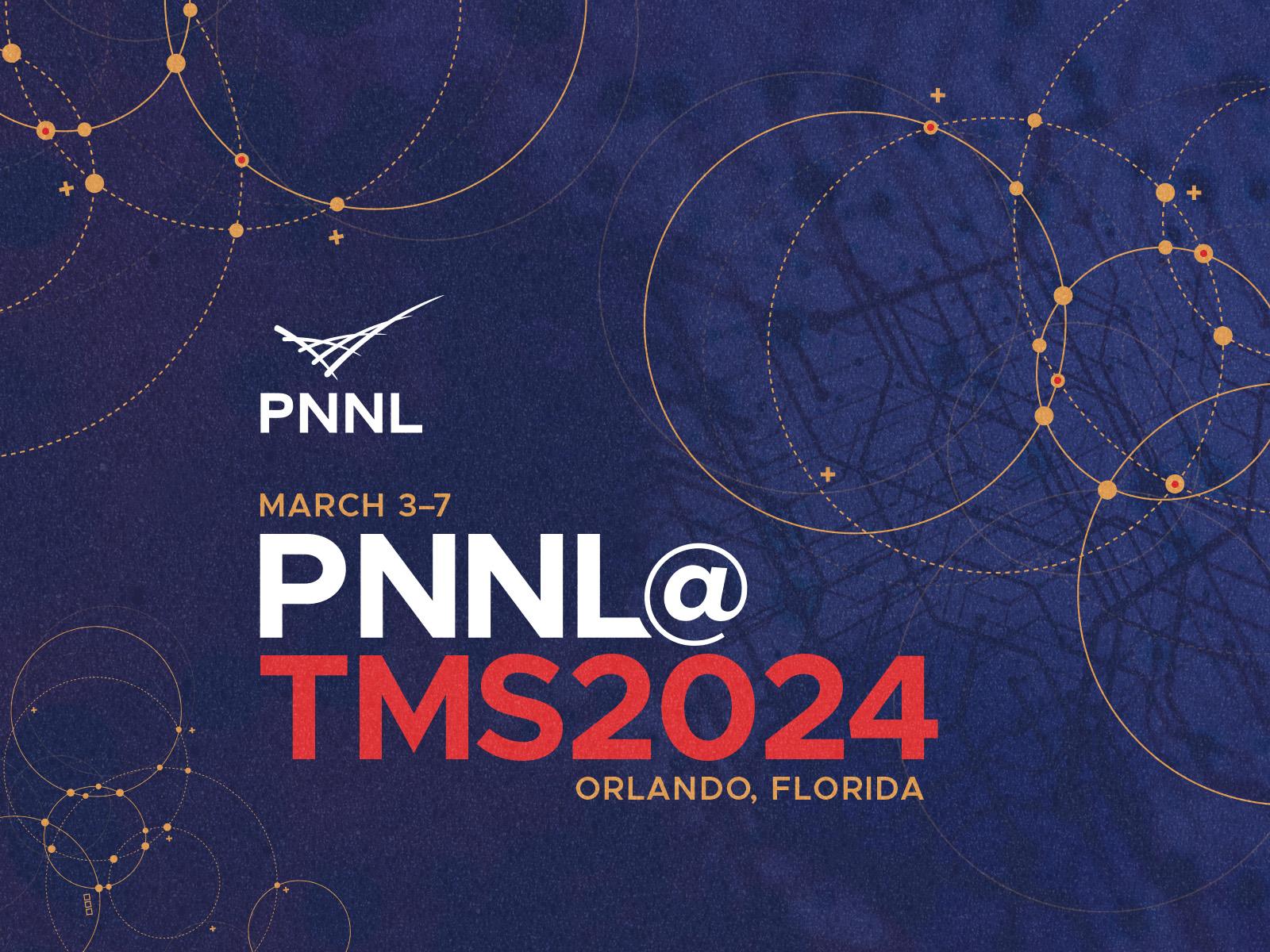TMS 2024
Meet PNNL at the annual meeting for The Minerals, Metals, and Materials Society (TMS)

March 3–7, 2024
Orlando, Florida
Meet PNNL at the annual meeting for The Minerals, Metals, and Materials Society (TMS)

Orlando, Florida
Scientists from Pacific Northwest National Laboratory (PNNL) will join peers from around the world at TMS 2024, gathering place for the global minerals, metals, and materials community.

Co-organizers: Subhashish Meher, Mohan Sai Kiran Kumar Yadav Nartu, and Isabella van Rooyen
Isabella also has a personal story and advice about aiming for diversity in connection with International Women’s Day.

Session co-organizer: Arun Devaraj

Invited Presenter: Sridhar Niverty
Friction Stir Processing (FSP) homogenizes and refines the microstructure through severe plastic deformation. Previous studies have demonstrated that the processed zone is more corrosion resistant compared to the base magnesium alloy. However, the corrosion behavior of the microstructure immediately adjacent to the processed zone, and how it affects the base material under corrosive environments has received little attention.
Presenter: Mageshwari Komarasamy
Titanium scrap is highly recyclable but requires the addition of titanium sponge during vacuum arc remelting to achieve the desired properties. If the need for fresh sponge and remelting could be eliminated during recycling, then energy consumption, carbon footprint, and sustainability could be dramatically improved.

Presenter: Weilin Jiang
Compared to brittle tungsten, ductile-phase-toughened tungsten (DPT W) composites are found to possess significantly improved mechanical properties. These materials have been investigated for potential applications in the plasma-facing components of fusion reactors. The DPT W in this study consists of W particles embedded in a ductile-phase NiFeW matrix.

Presenter: Jorge F. dos Santos
Solid phase additive manufacturing is an emerging technology to produce parts featuring recrystallized, fine grained, isotropic microstructures, circumventing melting and solidification of the deposited material.

Keynote Presenter: Jie Xiao
To significantly boost the energy of the state-of-art lithium ion (Li-ion) batteries, one of the most effective approaches is to replace graphite anode with Li metal which is ultralight but energy rich. However, its thermodynamically instable nature in liquid electrolytes poses well-known challenges such as dendrite formation, which plagues the implementation of the proposed technology. This talk will discuss the fundamental challenges of utilizing Li metal anode at the cell-level.

Presenter: Amanda Lines
Real time and in situ monitoring of chemical composition within nuclear materials processing streams can provide unprecedented insight into process chemistry. This can facilitate significant benefits at large-scale (e.g., process control, nonproliferation efforts, and cost reductions). However, this approach can also offer a powerful route to better understand the fundamental chemistry of actinides or improve efficiency of development and testing of new actinide processing techniques.

Invited Presenter: Li Zehao
Friction Stir Processing (FSP) homogenizes and refines the microstructure through severe plastic deformation. Previous studies have demonstrated that the processed zone is more corrosion resistant compared to the base magnesium alloy. However, the corrosion behavior of the microstructure immediately adjacent to the processed zone, and how it affects the base material under corrosive environments has received little attention.

Invited Presenter: Julia Nguyen
The characterization of microstructural features is essential for understanding and predicting material performance. One powerful tool for microstructural characterization is electron backscatter diffraction (EBSD), which provides quantitative information on features such as shape, size, and orientation of grains.
If you're looking for a career in materials science at PNNL, check out our current openings: